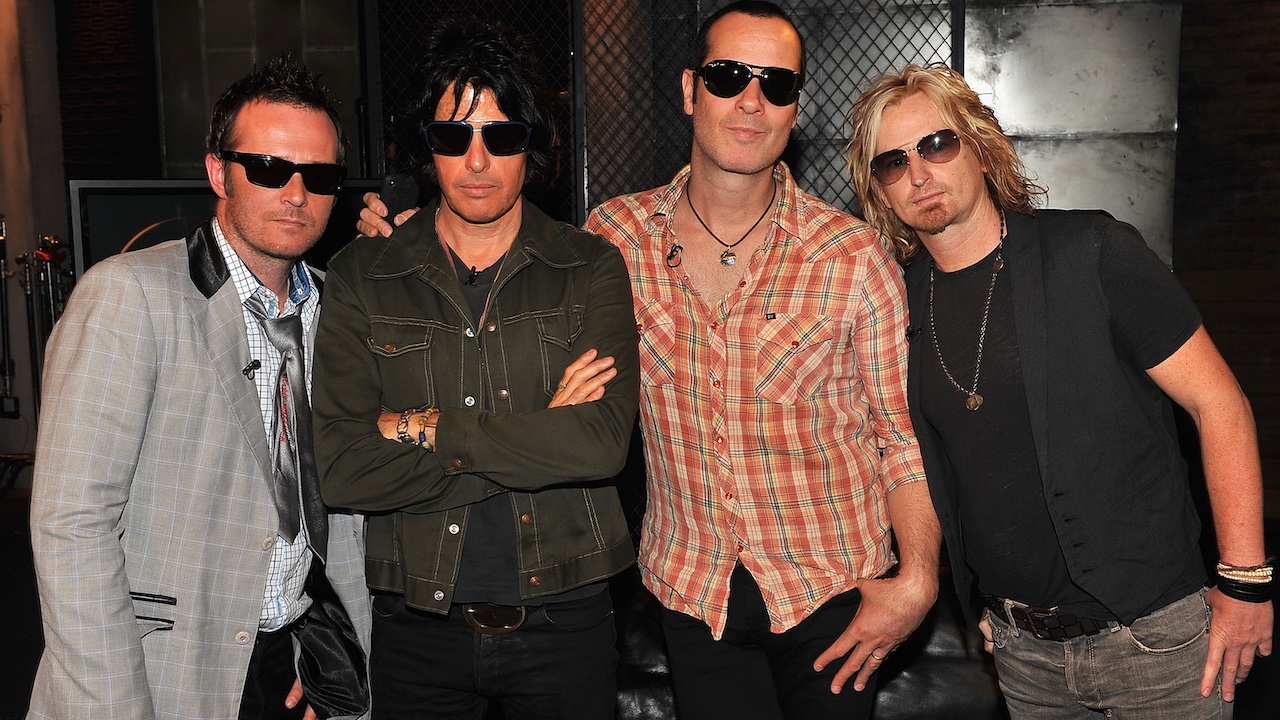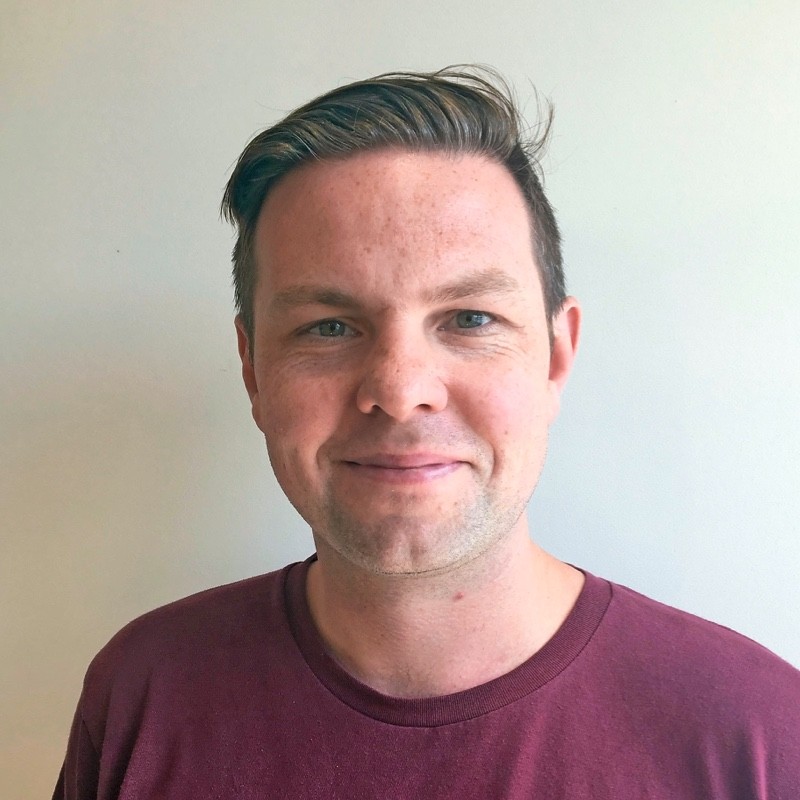“We exhausted ourselves trying to help Scott and be a friend. He wanted no part of that”: the story behind Stone Temple Pilots’ ill-fated sixth record, as told by the band themselves
What was meant to be a fresh start for the grunge giants ended up being the beginning of the end for their classic line-up

Select the newsletters you’d like to receive. Then, add your email to sign up.
You are now subscribed
Your newsletter sign-up was successful
Want to add more newsletters?

Every Friday
Louder
Louder’s weekly newsletter is jam-packed with the team’s personal highlights from the last seven days, including features, breaking news, reviews and tons of juicy exclusives from the world of alternative music.

Every Friday
Classic Rock
The Classic Rock newsletter is an essential read for the discerning rock fan. Every week we bring you the news, reviews and the very best features and interviews from our extensive archive. Written by rock fans for rock fans.

Every Friday
Metal Hammer
For the last four decades Metal Hammer has been the world’s greatest metal magazine. Created by metalheads for metalheads, ‘Hammer takes you behind the scenes, closer to the action, and nearer to the bands that you love the most.

Every Friday
Prog
The Prog newsletter brings you the very best of Prog Magazine and our website, every Friday. We'll deliver you the very latest news from the Prog universe, informative features and archive material from Prog’s impressive vault.
Stone Temple Pilots’ self-titled sixth album was meant to signal a fresh start for the grunge quartet but it ended up bringing down the curtain on the original, Scott Weiland-fronted line-up of the band instead. When Stone Temple Pilots was released in May 2010, 15 years ago this week, the group put on a united front, perhaps hoping they could paper over the cracks and embark on a new era of success following their imperial, mega-selling run in the 90s. But it was not to be. An irreparable chasm had appeared between late, perennially troubled frontman Scott Weiland and his bandmates Dean and Robert DeLeo and Eric Kretz.
Perhaps they should have heeded the early warnings that this was not going to be a smooth ride. The group had originally gone their separate ways in 2002, Weiland forming Velvet Revolver with ex-GN’R members Slash, Duff McKagan and Matt Sorum and the DeLeo brothers teaming up with Filter frontman Richard Patrick as heavy rock outfit Army Of Anyone. But after Weiland’s stint in Velvet Revolver was brought to an ominous end in 2008, Stone Temple Pilots had reunited and set out on a triumphant comeback tour. New music seemed like a logical next step but first there was a lawsuit from their old label Atlantic to contend with. If there was new material to release, Atlantic demanded, then it would be coming out through them, something at odds with Weiland’s desire to distance himself from major labels.
“It was sad to find out that we’re still locked into a contract with Atlantic Records,” he complained to Billboard. “It’s a travesty, actually. When we signed to them, it was a great label. It was a beautiful time in music. When we first talked about putting STP back together, it was, ‘Do this tour and then see about doing a creative deal with another company’. If it ends up being we have to make a certain amount of records for Atlantic in order to be free, then I don’t know if I have that in me.”
But, with a little word in his ear from his bandmates, Weiland was soon on board with an Atlantic-released record. It was there in black and white, they told him. “I had to tap him on the shoulder and say, ‘By the way, we’re contractually obligated to two more albums’,” Dean DeLeo said in 2010. “I knew what was at hand on a legal front.”
The dispute ironed out, they got down to work. Burned by an experience on the Army Of Anyone record, the DeLeo brothers decided to produce the album themselves, sessions squeezed in between tour dates over three simultaneous studio set-ups, with Dean, Robert and Kretz working on the music between two locations and Weiland setting up base in his own studio to deliver the vocals. It doesn’t exactly seem like the easiest way to make a record.
Not that the finished album reflects its disparate creation. Stone Temple Pilots is rootsy rock’n’roll gem, a little more loose-limbed than their 90s output but all the better for it. At its best, it has a sort of Bowie-meets-The Band feel to it. “It’s a straightforward STP rock’n’roll record,” Weiland said. “There’s a lot of blues to it, a lot of R&B to it and a little Louisiana Purchase to it. But at the core, it’s a rock album.”
In interviews around the record, Dean was keen to stress that Weiland working separately from the rest of the band was nothing new. “People seem to want to pick apart this record: 'Oh, we hear you were working in separate studios - was there any unity in the band?'” he told Music Radar. “Nothing's changed. Everything's been exactly the same. Robert, Eric and I get in and hash out a lot of material. Scott doesn't like to take part in that first week because who would want to be there when three guys are hashing through piles and piles of material? As a singer, I wouldn't want to be there and be overwhelmed by all that stuff flying around.”
The latest news, features and interviews direct to your inbox, from the global home of alternative music.
Weiland was keen to underline that this was the start of something for the group. “It’s like a new beginning with STP,” he said in an interview with The Vancouver Sun. “Although, in a way, it feels like we never left each other.”
But the harmony was not to last. Weiland was sacked from the band in 2013 and, two years later, he died from an accidental drug overdose. Looking back on the making of Stone Temple Pilots in 2018, his ex-bandmates were a little more candid about recording sessions than they had been at the time.
“I would never want to make a record like that again,” said Robert DeLeo. “It was literally the three of us in a place and Scott over here somewhere else and sending over vocals. We took on the role of producing that record and, as a producer, when those vocals were coming over, they were not satisfactory. They just weren’t… It was literally making a record without having four guys in a room, you’re doing four different versions of a song to figure out what key is the best because the communication and the people surrounding Scott, it had come to that point.”
Weiland had insisted to interviewers that he had made Stone Temple Pilots sober but Dean offered up a different version of events. “He came over to listen to those songs for the first time and we were listening to those songs and he passed out in the chair,” he said, making a ‘WTF?’ gesture.
“It was very evident where Scott was going,” added Robert. “He had a new posse of people around him that just kept feeding him all that he was and they left out one vital part of that and that was his health and his well-being. Everybody just wanted money. Robert and Eric and I exhausted ourselves trying to help him and be a friend. He wanted no part of that.”
“When the truth comes round to someone that heavily in addiction, they want to run away from that. It’s really sad to see,” agreed Dean.
Robert said it became apparent that the band’s classic line-up was no longer working. They had reached the end of the road. “We love spending time with one another and most of all playing music. It was very obvious for many years that we weren’t able to do that any longer with Scott,” he recalled. “Think of that. It’s how we established a bond with one another and the thing that brought us together, we were unable to achieve. It was very evident how that was gonna end.”
After the deaths of Weiland and his replacement Chester Bennington, Stone Temple Pilots re-launched themselves in 2018 with a second self-titled album and a new singer in Jeff Gutt. They had tried a fresh start before and it hadn’t worked. They were determined to give it another go.
Niall Doherty is a writer and editor whose work can be found in Classic Rock, The Guardian, Music Week, FourFourTwo, Champions Journal, on Apple Music and more. Formerly the Deputy Editor of Q magazine, he co-runs the music Substack letter The New Cue with fellow former Q colleague Ted Kessler. He is also Reviews Editor at Record Collector. Over the years, he's interviewed some of the world's biggest stars, including Elton John, Coldplay, Radiohead, Liam and Noel Gallagher, Florence + The Machine, Arctic Monkeys, Muse, Pearl Jam, Depeche Mode, Robert Plant and more.

